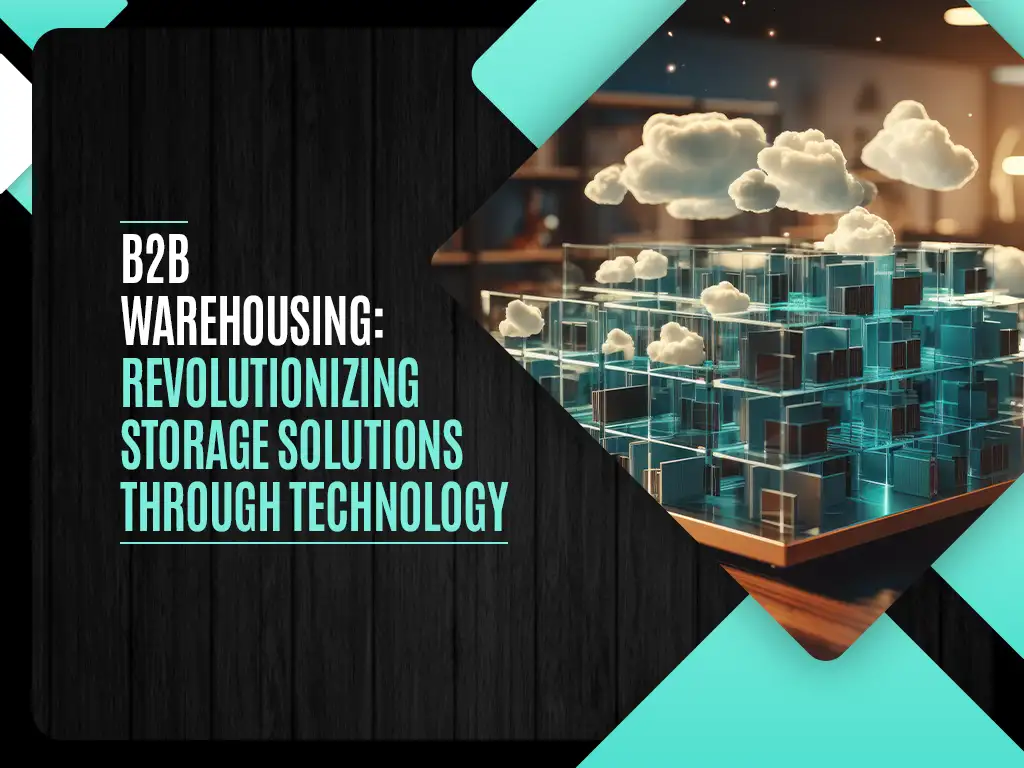B2B Warehousing: Revolutionizing Storage Solutions through Technology
Discover how B2B warehousing is revolutionizing storage solutions through advanced technology, improving efficiency and management.

Leveraging Advanced Tech for Enhanced Efficiency and Competitive Edge
In the fast-paced world of B2B commerce, efficiency is paramount. The transformation of warehouse storage solutions showcases the synergy between technology and logistics, a critical factor for businesses seeking a competitive edge. Traditional warehouses with static rows of shelves have evolved into dynamic hubs of innovation. These modern storage facilities harness advanced technologies to optimize space, streamline operations, and boost overall efficiency. Let’s delve into the technological advancements reshaping warehouse storage solutions.
Automation: The Driving Force of Modern Warehousing
Automation is at the forefront of this technological revolution, fundamentally transforming storage and retrieval processes in B2B warehouses. Automated storage and retrieval systems (AS/RS) utilize robotics and sophisticated software algorithms to manage inventory with precision, reducing human error and enhancing efficiency. From robotic palletizers and automated guided vehicles (AGVs) to robotic arms for picking and packing, automation accelerates operations, increases throughput, and reduces labor costs, ensuring that B2B businesses can meet the high demands of their clients efficiently.
IoT and Real-Time Inventory Control
The Internet of Things (IoT) has permeated every aspect of warehouse management, providing unparalleled visibility and control over inventory, as highlighted by Engineered Solutions Direct. IoT-enabled sensors and RFID tags track the movement and location of goods in real-time, offering accurate inventory data and facilitating proactive decision-making. For B2B operations, this means warehouse managers can monitor stock levels, track expiration dates, and optimize replenishment processes, ensuring seamless inventory management and reducing stockouts.
Predictive Analytics for Demand Forecasting
Predictive analytics algorithms leverage big data to forecast demand patterns and optimize inventory levels. By analyzing historical sales data, market trends, and external factors, predictive analytics tools generate precise demand forecasts. This enables B2B warehouses to stock the right products in the right quantities at the right times, minimizing excess inventory, reducing stockouts, and enhancing overall supply chain efficiency. For businesses, this means a more responsive and reliable supply chain that can adapt to market changes swiftly.
AI-Driven Space Optimization
Artificial Intelligence (AI) algorithms are revolutionizing warehouse layout design and space utilization strategies. AI-powered software analyzes floor plans, inventory data, and traffic patterns to optimize storage configurations and aisle layouts. Through machine learning algorithms, warehouses can dynamically adjust storage locations based on demand fluctuations, maximizing space utilization and minimizing travel distances for pickers. This is particularly beneficial for B2B warehouses where space efficiency can significantly impact operational costs and fulfillment speed.
Robotics in Material Handling and Sorting
Robotic solutions are transforming material handling and sorting operations within warehouses. Automated sortation systems equipped with robotic arms swiftly process incoming goods, sorting them into designated bins or conveyors for storage or shipping. These robotic systems significantly enhance throughput, reduce processing times, and improve order accuracy, boosting overall warehouse efficiency. For B2B warehouses, this translates to faster turnaround times and higher accuracy in order fulfillment, crucial for maintaining client satisfaction and trust.
Augmented Reality in Pick-and-Pack Operations
Augmented Reality (AR) technologies are revolutionizing pick-and-pack operations by providing warehouse workers with real-time visual guidance and information overlays. AR-enabled smart glasses (read more) or mobile devices display digital overlays of pick locations, item details, and packing instructions, guiding workers through the fulfillment process with precision and efficiency. This hands-free approach reduces errors, speeds up order fulfillment, and enhances worker productivity, making it a valuable tool for B2B warehouses aiming to improve operational efficiency and accuracy.
Cloud-Based Warehouse Management Systems (WMS)
Cloud-based Warehouse Management Systems (WMS) are now crucial to modern warehouse operations, offering scalability, flexibility, and real-time accessibility. Cloud-based WMS platforms centralize inventory data, streamline order processing, and automate workflows, facilitating seamless coordination between warehouse activities and other supply chain functions. With anytime, anywhere access, cloud-based WMS empower warehouse managers to make informed decisions and optimize operations on the go. For B2B operations, this means greater agility and the ability to respond quickly to client demands.
The Future of Warehouse Storage Solutions
As technology continues to advance rapidly, the future of warehouse storage solutions holds limitless possibilities. From AI-driven optimization algorithms to blockchain-enabled supply chain transparency, the convergence of technology and logistics is set to reshape the warehouse landscape in unprecedented ways. By embracing innovation and leveraging technology, B2B warehouses can achieve new levels of efficiency, agility, and competitiveness in the ever-evolving world of commerce. This proactive approach ensures that businesses stay ahead of the curve, ready to meet the demands of a dynamic market.




